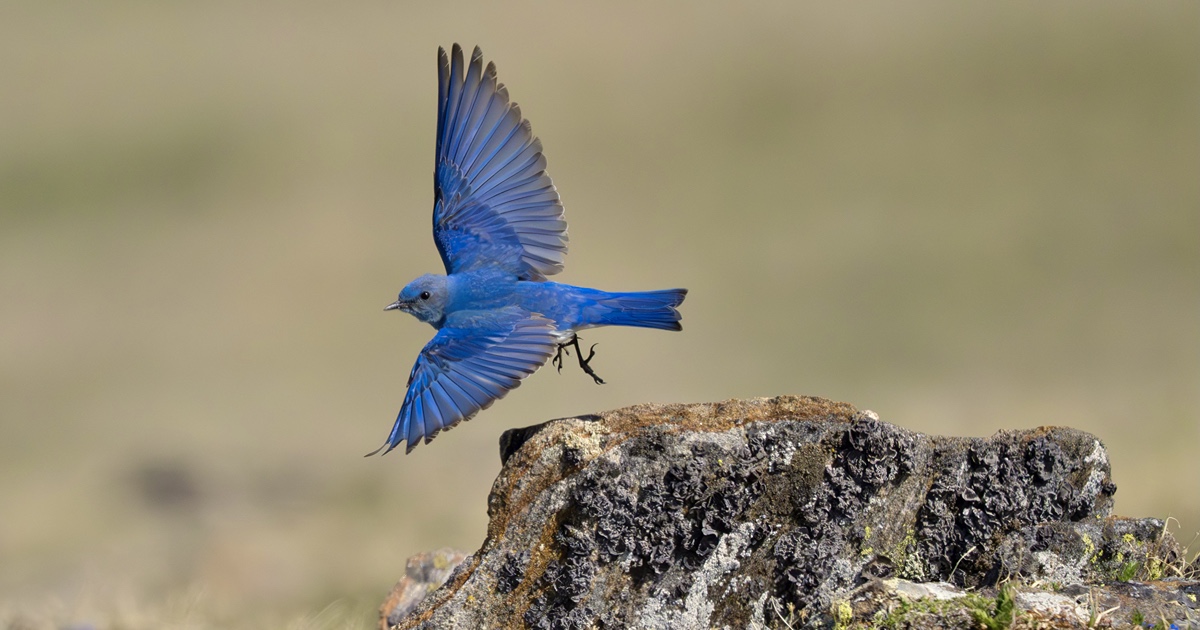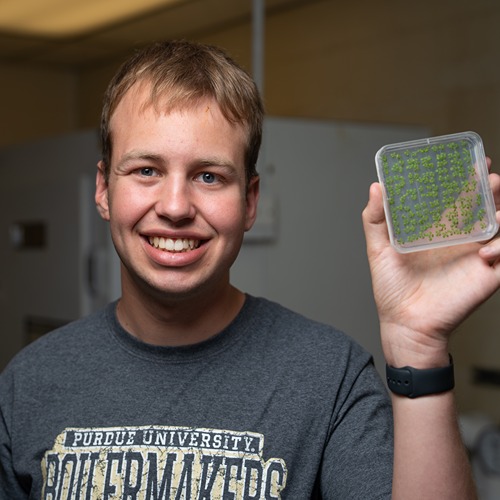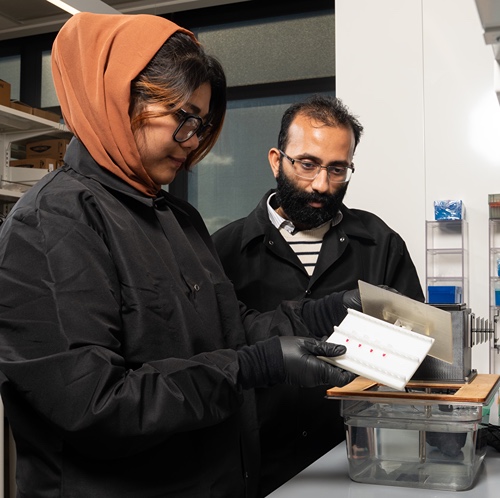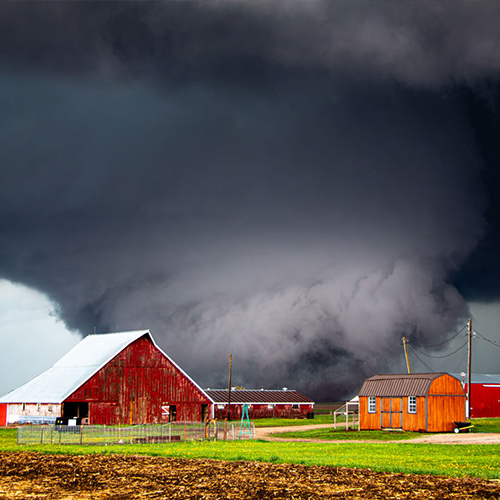U.S. Department of Energy taps Purdue Extension to lead new Indiana collaborative for renewable energy
A developer approaches a local plan commission, seeking approval to locate a wind or solar farm in the community. But the community may not have an ordinance that regulates a commercial solar or commercial wind development. Or, because the technology has changed so rapidly, the existing ordinance needs review and rewriting.
Perhaps a locality is further along, on its way to permitting a renewable energy development. But local officials are unsure how to negotiate an economic development agreement that best serves their community.
Purdue Extension — already an informational resource for issues like these — has received a three-year, $1.9 million award to lead an Indiana Renewable Energy Planning and Technical Engagement Collaborative. The collaborative will be a hub to help Indiana communities with renewable energy planning, evaluation and decision-making.
Purdue Extension was one of six state-based projects that received funding through the Renewable Energy Siting through Technical Engagement and Planning (R-STEP) program. Funded by the U.S. Department of Energy’s Solar Energy Technologies Office and Wind Energy Technologies Office, R-STEP supports statewide initiatives that provide expertise, trainings and technical resources to help local governments and communities plan for and evaluate large-scale renewable energy and energy storage projects.
Many renewable energy projects are in rural areas because of the space that commercial solar and commercial wind development require. “A lot of communities are getting approached,” says Tamara Ogle, community development regional educator with Purdue Extension. “For many, this is a new land use, and understanding the implications of that land use, as well as what it brings into the community, is really important.”
“The way that Indiana works is that local communities can make the decision on their own whether or not they want to have planning and zoning for renewable energy,” explains Kara Salazar, assistant program leader for community development with Purdue Extension. “But they need to consider a lot of different factors to decide if and how they want to regulate renewable energy land uses, and it can be challenging for a community to have all of the expertise locally to guide them through these decisions.”
By supporting data-driven, local decision-making, the collaborative will help communities understand the effects of renewable energy development on the local economy, land rights and use, local workforce, and the broader energy landscape.
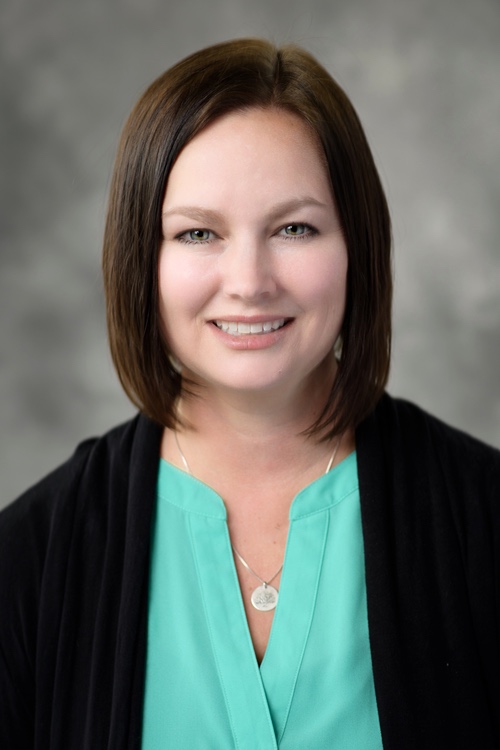 Kara Salazar, assistant program leader for community development with Purdue Extension
Kara Salazar, assistant program leader for community development with Purdue Extension 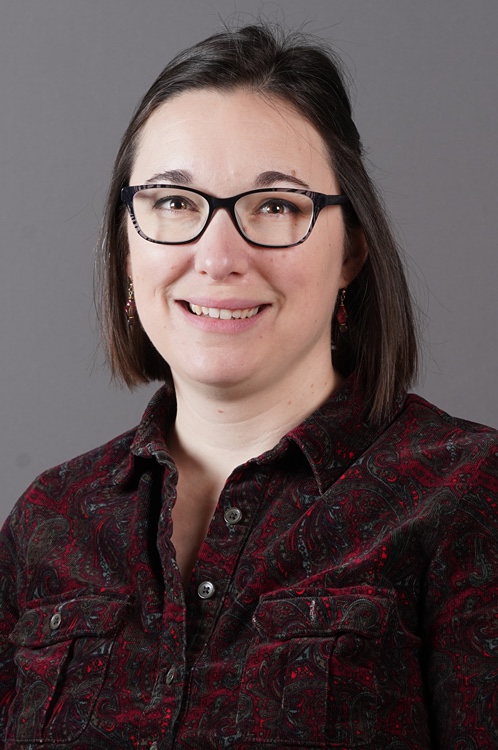 Tamara Ogle, community development regional educator with Purdue Extension
Tamara Ogle, community development regional educator with Purdue Extension Communities sometimes ask Purdue Extension how to bring a wide range of viewpoints into their decision-making process. This is especially important in rural communities that don’t often see large-scale development, Salazar says. “It’s a big decision to make. It’s not as much about the technology itself; it’s more about how the community is going to look and feel and grow into the future. So when residents and other interested parties who live there and work there are able to help make decisions, you can have the placement of these different types of projects in areas that make sense locally.”
“Purdue Extension has been doing this kind of process and technical assistance work in communities for a long time,” Ogle adds. “Our goal is to support informed local decision making — helping them to weigh alternatives and consequences and have the information to make the best decision for their community.”
One area in need of attention is Indiana’s patchwork of inconsistent local ordinances. The grant will allow Purdue Extension to update the state’s ordinance inventory to include the many changes that have occurred since it was compiled in 2021. “The ordinance inventory helps communities and plan commissions throughout the state look at and compare ordinances so that they can craft their own for renewable energy,” Salazar explains.
Other help will be hands-on. Landowners and planners alike may benefit from new webinars, site tours of renewable energy projects, workshops, networking opportunities and presentations. Extension is also working with technical experts and planners on a renewable energy guidebook, fact sheets and web-based resources like case studies. A statewide summit in year three will offer insight into how the collaborative can continue to support communities.
In 2023 the Indiana Legislature approved voluntary guidelines for wind and solar standards that local communities can adopt, and established the Commercial Solar and Wind Energy Ready Communities Development Center as a resource for wind and solar energy development. Through the R-STEP grant, Purdue Extension is working with the Indiana Office of Energy Development to assist communities interested in becoming certified as Commercial Solar Energy Ready, Wind Energy Ready or both.
“The Indiana Office of Energy Development is excited to partner with Purdue University on this program. R-STEP will support local communities in making informed decisions about Indiana’s important energy resources, including wind and solar,” says Ryan Hadley, executive director of the Indiana OED.
Other partners in the collaborative include the Association of Indiana Counties, Ball State University Center for Business and Economic Research, Center for Energy Education, Center for Infrastructure & Economic Development, Clean Grid Alliance, EDP Renewables, Indiana Agriculture Coalition for Renewable Energy (IN-ACRE), Indiana Chapter of American Planning Association, Indiana University Public Policy Institute, Myerson Consulting, JMW Co., and The Nature Conservancy in Indiana.
The collaborative not only fosters coordination and communication between partners; the diverse and multidisciplinary group covers the full spectrum of support that communities need to make informed decisions as well.
It also will enable Purdue Extension to respond more quickly to communities that are asking for help and guidance, Ogle says. “Especially in solar, we’re seeing a lot of proposed development out there. We have to be able to respond quickly so that communities can make those decisions when they need to make them.”
Those decisions are especially timely as Indiana transitions to an increasingly diverse fuel mix and new technologies. In the last 10 years, coal has declined from 76% to 47%, while wind increased to 9% of the state’s fuel mix. Indiana is a national leader in solar development, with estimates that solar may make up 15% of the state fuel mix in the next few years.
Beyond Indiana, R-STEP opens communication between Purdue Extension and the five other grant recipients, three of which are led by university-based extension offices. “This grant will allow us to connect with other states that are doing the same work,” Ogle says. “We’ll be able to learn from some of the things that they’re putting together and bring those resources here as well. The ability to synergize and collaborate is going to elevate the work that we can do in this area.”
The Purdue Extension-led collaborative ultimately focuses on local communities. “There is a lot of misinformation out there about renewable energy right now,” Salazar says. “We’re here to provide education and resources for a regulated land use, and that’s something we do for communities across the state as part of our mission in Purdue Extension and our land use education efforts.”

